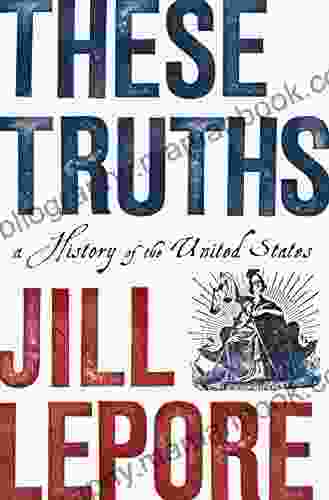These Truths: A Comprehensive History of the United States

An Overview of American History
The history of the United States is a complex and fascinating narrative that spans centuries, encompassing a diverse array of events, figures, and themes that have shaped the nation's identity and development. From its colonial origins to its rise as a global superpower, the United States has experienced periods of both triumph and adversity, witnessing the birth of new ideas, the struggle for equality, and the forging of a unique national character.
In this comprehensive article, we will delve into the rich tapestry of American history, exploring key milestones, examining pivotal figures, and discussing the major themes that have influenced the course of the nation's development. From the founding fathers and the struggle for independence to the Civil War and the fight for civil rights, we will uncover the complexities of this remarkable journey.
4.6 out of 5
| Language | : | English |
| File size | : | 115520 KB |
| Text-to-Speech | : | Enabled |
| Screen Reader | : | Supported |
| Enhanced typesetting | : | Enabled |
| X-Ray | : | Enabled |
| Word Wise | : | Enabled |
| Print length | : | 955 pages |
The Colonial Era (1607-1763)
The colonial era marks the beginning of American history, with the establishment of the first permanent English settlements at Jamestown, Virginia (1607) and Plymouth, Massachusetts (1620). This period was characterized by European colonization, the displacement of Native American populations, and the growth of a distinct American identity.
European powers, including England, France, Spain, and the Netherlands, competed for control of North America, establishing colonies along the Atlantic coast. The colonists brought with them their own cultures, traditions, and political systems, which would later form the foundation of the American nation.
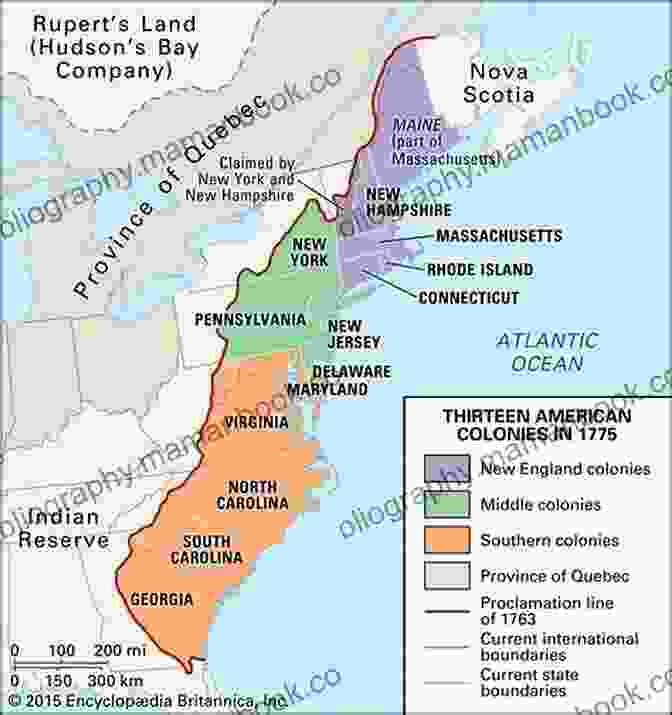
The Revolutionary War (1775-1783)
Growing tensions between the British government and the American colonists over issues of taxation, representation, and colonial self-governance led to the outbreak of the Revolutionary War in 1775. Inspired by Enlightenment ideals of liberty and self-determination, American revolutionaries, led by figures such as George Washington, Thomas Jefferson, and Benjamin Franklin, fought for independence from Great Britain.
The war culminated in the Declaration of Independence (1776),which proclaimed the American colonies' separation from British rule. After eight years of bitter fighting, the Continental Army emerged victorious, securing the nation's independence in 1783.
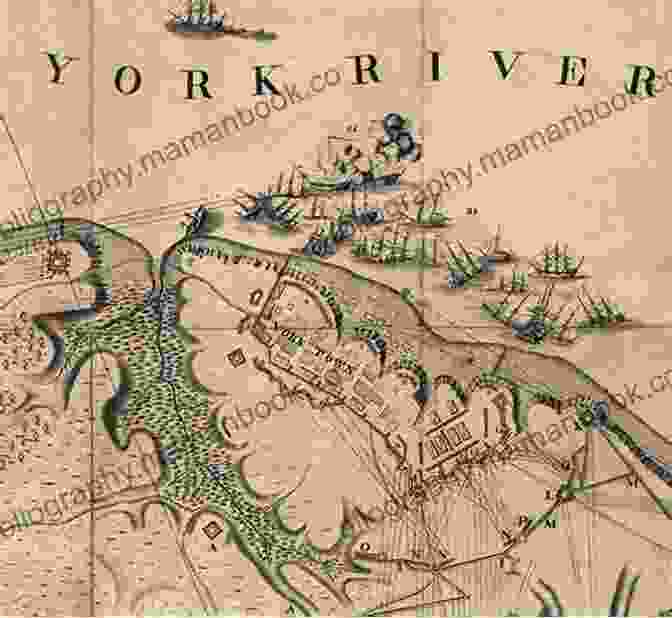
The Constitutional Era (1783-1861)
Following the Revolutionary War, the newly independent states adopted the Articles of Confederation, a loose framework for cooperation. However, the need for a stronger central government became apparent, and in 1787, the Constitutional Convention drafted the U.S. Constitution, which established the foundation of the federal government.
The Constitutional Era witnessed significant political, economic, and territorial expansion. The Louisiana Purchase (1803) doubled the size of the United States, and westward expansion brought new challenges and opportunities. The Industrial Revolution transformed the nation's economy, leading to the rise of cities and the growth of a middle class.
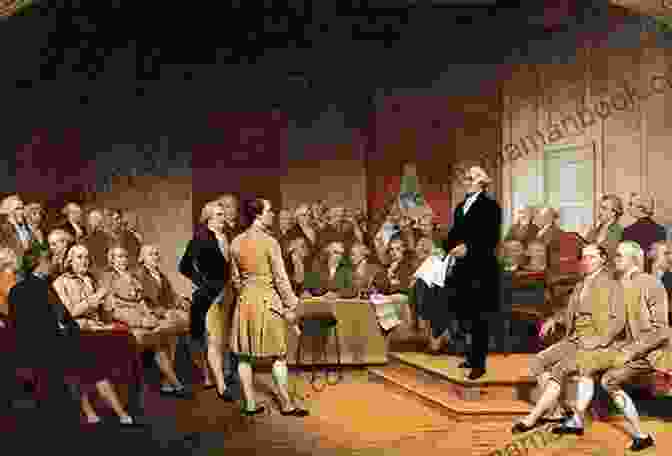
The Civil War (1861-1865)
The issue of slavery became a major dividing line in the nation, leading to the outbreak of the Civil War in 1861. Northern states, led by President Abraham Lincoln, fought to preserve the Union, while Southern states, known as the Confederacy, fought for independence and the preservation of slavery.
The Civil War was a bloody and devastating conflict, resulting in the deaths of over 600,000 Americans. The Union victory in 1865 abolished slavery and preserved the unity of the nation, but the legacy of the war continued to shape American society in the years that followed.

Reconstruction and Industrialization (1865-1900)
The post-Civil War period was a time of Reconstruction, as the nation struggled to rebuild and reunite. The Reconstruction Era witnessed the passage of the 13th, 14th, and 15th Amendments to the Constitution, which abolished slavery, granted citizenship to former slaves, and prohibited racial discrimination in voting.
This period also saw the rapid growth of industrialization, as the United States emerged as a leading economic power. The development of railroads, factories, and new technologies transformed American society and spurred westward expansion.
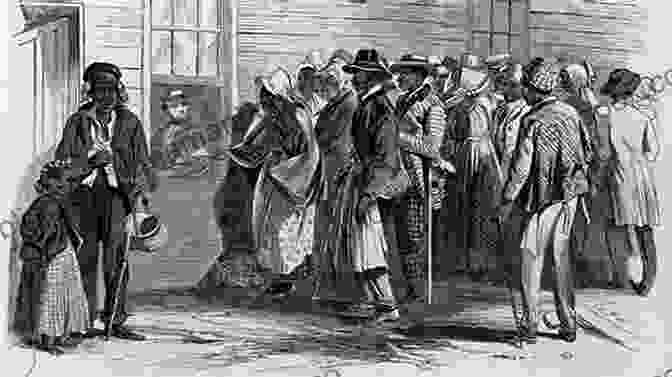
The Progressive Era and World Wars (1900-1945)
The early 20th century was marked by the Progressive Era, a period of social and political reform. Progressive reformers fought for women's suffrage, child labor laws, and other measures to address economic and social inequality.
The United States entered World War I in 1917, fighting alongside the Allied Powers against Germany and its allies. The war ended in 1918 with an Allied victory, but the United States experienced significant economic and social disruption.
In the 1930s, the Great Depression devastated the American economy. President Franklin D. Roosevelt's New Deal policies helped to alleviate the crisis and lay the foundation for economic recovery.
The United States entered World War II in 1941 after the Japanese attack on Pearl Harbor. The war ended in 1945 with an Allied victory, and the United States emerged as a global superpower.

The Cold War and Civil Rights Movement (1945-1968)
Following World War II, the United States and the Soviet Union emerged as the two dominant global powers, leading to the Cold War, a period of political and ideological rivalry and proxy conflicts.
In the United States, the Cold War fueled fears of communism and led to a period of domestic repression known as the McCarthy era. At the same time, the Civil Rights Movement gained momentum, with African Americans fighting for equal rights and an end to segregation.
The assassination of President John F. Kennedy in 1963 and the escalation of the Vietnam War marked significant turning points in American history. The Civil Rights Movement achieved major victories with the passage of the Civil Rights Act of 1964 and the Voting Rights Act of 1965.

Recent History (1968-Present)
Following the turmoil of the 1960s, the United States entered a period of relative stability and economic growth. However, the nation faced challenges such as the Watergate scandal, the energy crisis, and the Cold War.
The end of the Cold War in 1991 marked a significant shift in global politics. The United States emerged as the sole superpower, and the rise of globalization and the internet transformed the economy and society.
In the 21st
4.6 out of 5
| Language | : | English |
| File size | : | 115520 KB |
| Text-to-Speech | : | Enabled |
| Screen Reader | : | Supported |
| Enhanced typesetting | : | Enabled |
| X-Ray | : | Enabled |
| Word Wise | : | Enabled |
| Print length | : | 955 pages |
Do you want to contribute by writing guest posts on this blog?
Please contact us and send us a resume of previous articles that you have written.
 Top Book
Top Book Novel
Novel Fiction
Fiction Nonfiction
Nonfiction Literature
Literature Paperback
Paperback Hardcover
Hardcover E-book
E-book Audiobook
Audiobook Bestseller
Bestseller Classic
Classic Mystery
Mystery Thriller
Thriller Romance
Romance Fantasy
Fantasy Science Fiction
Science Fiction Biography
Biography Memoir
Memoir Autobiography
Autobiography Poetry
Poetry Drama
Drama Historical Fiction
Historical Fiction Self-help
Self-help Young Adult
Young Adult Childrens Books
Childrens Books Graphic Novel
Graphic Novel Anthology
Anthology Series
Series Encyclopedia
Encyclopedia Reference
Reference Guidebook
Guidebook Textbook
Textbook Workbook
Workbook Journal
Journal Diary
Diary Manuscript
Manuscript Folio
Folio Pulp Fiction
Pulp Fiction Short Stories
Short Stories Fairy Tales
Fairy Tales Fables
Fables Mythology
Mythology Philosophy
Philosophy Religion
Religion Spirituality
Spirituality Essays
Essays Critique
Critique Commentary
Commentary Glossary
Glossary Bibliography
Bibliography Index
Index Table of Contents
Table of Contents Preface
Preface Introduction
Introduction Foreword
Foreword Afterword
Afterword Appendices
Appendices Annotations
Annotations Footnotes
Footnotes Epilogue
Epilogue Prologue
Prologue Nicholas Jacobs
Nicholas Jacobs Rick Ross
Rick Ross Bethany Maines
Bethany Maines Yann Martel
Yann Martel Peter Turchi
Peter Turchi Jeremy Black
Jeremy Black Chris Claremont
Chris Claremont Clarisse A Jordan
Clarisse A Jordan Abbey Cristy
Abbey Cristy Angel Rosen
Angel Rosen Alison Gwilt
Alison Gwilt Edward S Ebert
Edward S Ebert Jane Feather
Jane Feather Daniel Jesse
Daniel Jesse David L Meyer
David L Meyer Syed Umar I Bukhari
Syed Umar I Bukhari Ariel Lawhon
Ariel Lawhon Amabel Daniels
Amabel Daniels Jill Lepore
Jill Lepore Natasha Madison
Natasha Madison
Light bulbAdvertise smarter! Our strategic ad space ensures maximum exposure. Reserve your spot today!

 Henry Wadsworth LongfellowButterfly Wings: Unveiling the Enchanting World of Kasthuri Packiyanathan
Henry Wadsworth LongfellowButterfly Wings: Unveiling the Enchanting World of Kasthuri Packiyanathan Branson CarterFollow ·2.5k
Branson CarterFollow ·2.5k Dave SimmonsFollow ·8.6k
Dave SimmonsFollow ·8.6k Curtis StewartFollow ·5.2k
Curtis StewartFollow ·5.2k Shane BlairFollow ·13.5k
Shane BlairFollow ·13.5k Corey GreenFollow ·15.2k
Corey GreenFollow ·15.2k Ernest ClineFollow ·9k
Ernest ClineFollow ·9k Harry HayesFollow ·13.4k
Harry HayesFollow ·13.4k Deion SimmonsFollow ·6.7k
Deion SimmonsFollow ·6.7k

 Patrick Rothfuss
Patrick RothfussHow to Make a Million Dollars: No Secrets
Making a million dollars...

 Robert Heinlein
Robert HeinleinResponse to Intervention, Second Edition: RTI in Practice
A Comprehensive Resource for Educators and...

 Timothy Ward
Timothy WardUnravel the Gripping Assassination Thriller Bursting with...
Prepare yourself for a...
4.6 out of 5
| Language | : | English |
| File size | : | 115520 KB |
| Text-to-Speech | : | Enabled |
| Screen Reader | : | Supported |
| Enhanced typesetting | : | Enabled |
| X-Ray | : | Enabled |
| Word Wise | : | Enabled |
| Print length | : | 955 pages |


